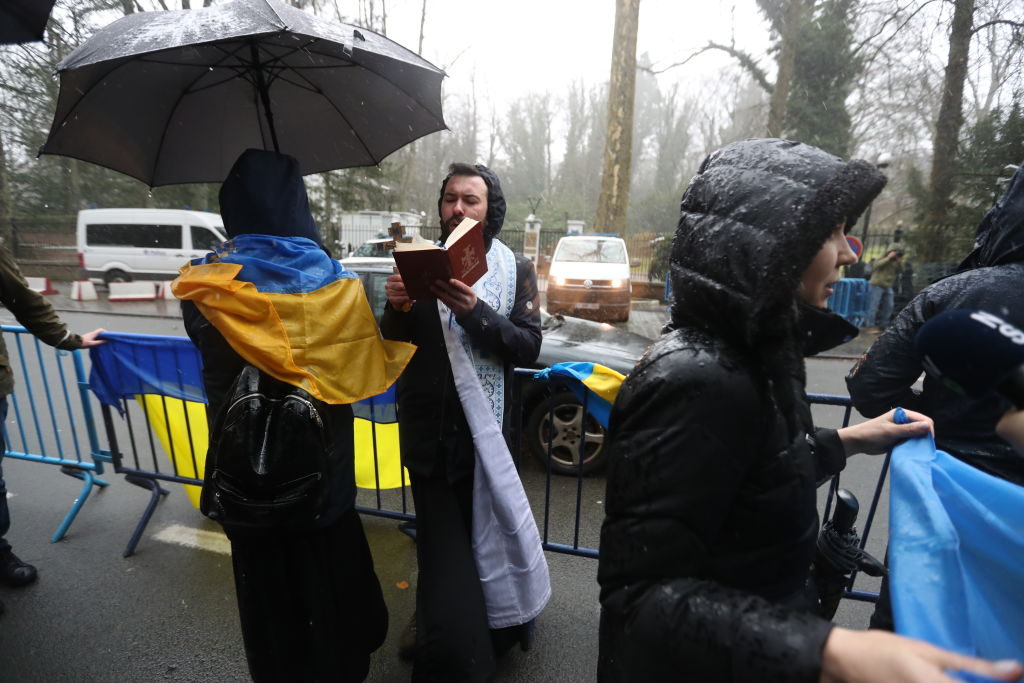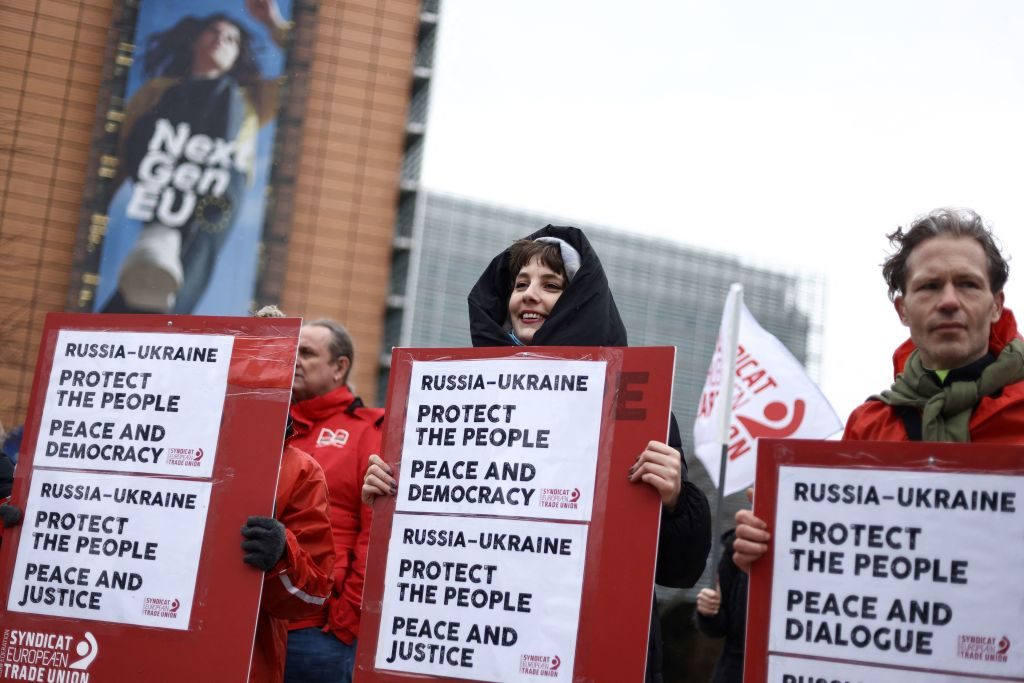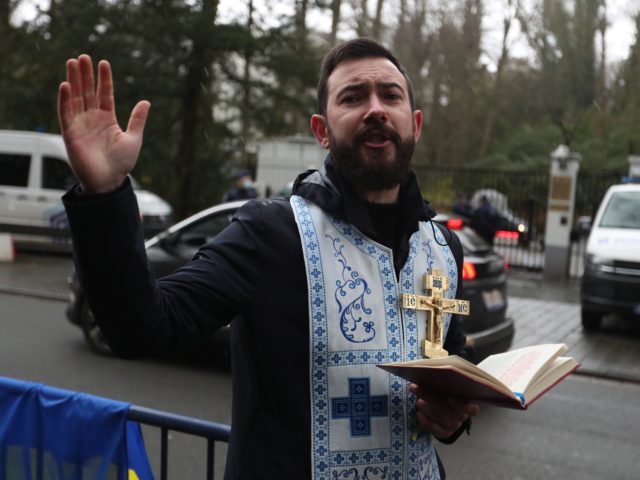The World Council of Churches (WCC) is “gravely concerned about the latest developments and escalating tensions threatening the peace and security of the people of Ukraine,” declared WCC Acting General Secretary Rev. Ioan Sauca in a statement this week.
In a diplomatically worded text that never mentions Russia by name, Rev. Sauca blamed the invasion of Ukraine on nebulous “geopolitical competition” rather than national aggression.
“We appeal urgently for an end to the dangerous geopolitical competition that has precipitated this crisis, for de-escalation and reduction of tensions, and for respect for international law and established national borders,” the statement reads.
“We call for a return to dialogue and to the principles of the Minsk Agreements as a pathway to a peaceful resolution of the longstanding tensions and divisions in the region, within the framework of international law and commitments,” the text continues.
“We plead again for consideration of the death and suffering that any armed conflict would inevitably visit on the children, women and men of Ukraine,” it concludes. “And once again we pray that eyes of those driving the march to war may yet be opened, and that peace may yet prevail.”
The WCC may have good reasons for being ambivalent about Russia and its imperialist pretensions.

Illustration picture shows a protest action in front of the Russian Embassy to call for peace in Ukraine, in Brussels, Thursday 24 February 2022. Last night Russia decided to invade several Ukrainian regions. (NICOLAS MAETERLINCK/BELGA MAG/AFP via Getty Images)
In 2015, Ion Mihai Pacepa — a 3-star general and former head of Communist Romania’s secret police who defected to the United States in 1978 — asserted that the Theology of Liberation was the creation of the KGB, who exported it to Latin America as a way of introducing Marxism into the continent.
Pacepa, who has been called “the Cold War’s most important defector,” said that Liberation Theology was born of a 1960s top-secret “Party-State Dezinformatsiya Program” approved by Aleksandr Shelepin, the chairman of the KGB.
The program mandated that “the KGB take secret control of the World Council of Churches (WCC), based in Geneva, Switzerland, and use it as cover for converting Liberation Theology into a South American revolutionary tool,” Pacepa said.
The Soviets were aware that the WCC was the largest international ecumenical organization after the Vatican, he said, representing some 550 million Christians of various denominations throughout 120 countries.

People gather near the European institutions during a demonstration of the European Trade Union Confederation against Russia’s military operation in Ukraine in Brussels on February 24, 2022. (KENZO TRIBOUILLARD/AFP via Getty Images)
In 1971, the KGB sent the current head of the Russian Orthodox Church, Patriarch Kirill, to Geneva as emissary of the Russian Orthodox Church to the World Council of Churches.
Kirill’s main task was to involve the WCC in spreading the new liberation theology throughout Latin America.
According to Pacepa, in 1975, the KGB “was able to infiltrate Kirill into the Central Committee of the WCC — a position he held until he was ‘elected’ patriarch of Russia, in 2009. Not long after he joined the Central Committee, Kirill reported to the KGB: ‘Now the agenda of the WCC is also our agenda.’”
Follow @tdwilliamsrome

COMMENTS
Please let us know if you're having issues with commenting.